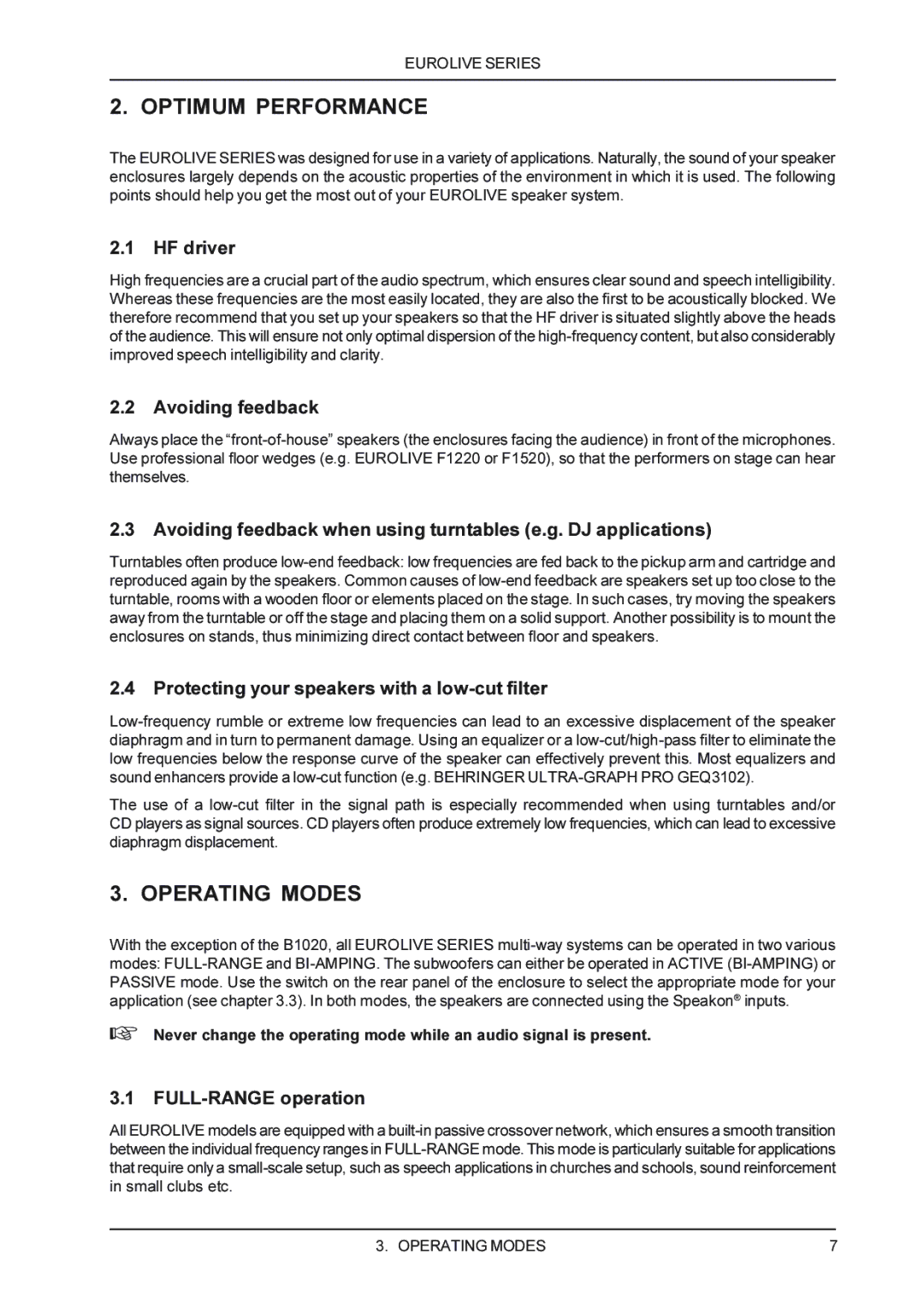B1220, B1520, F1220, F1520 specifications
Behringer is a renowned name in the audio equipment industry, known for delivering high-quality professional sound solutions at affordable prices. Among their popular offerings are the Behringer F1520, F1220, B1520, B1800, and B1220 loudspeakers, each designed to cater to specific needs in live sound reinforcement, installations, and personal use.The Behringer F1520 is a 15-inch loudspeaker featuring a powerful 300-watt RMS power handling capability. Its custom-designed low-frequency driver and an efficient compression driver deliver clear and impactful sound. The F1520 excels in mid-to-high frequency reproduction, making it ideal for live music venues, presentations, and events requiring robust audio performance.
Moving to the Behringer F1220, this model houses a 12-inch driver capable of delivering 250 watts RMS. The F1220 is a versatile loudspeaker designed for both indoor and outdoor use. Its lightweight and compact design, combined with its high-frequency response, make the F1220 perfect for mobile applications. With excellent feedback rejection and wide dispersion, this model ensures sound clarity in diverse settings.
The B1520 model features a larger 15-inch woofer, providing deeper bass response with a powerful 400-watt RMS handling. This speaker is particularly suited for club and live music applications, where low-end punch is critical. The B1520 incorporates a built-in crossover and high-frequency driver, ensuring that sound remains balanced and full-range at various volume levels.
Behringer's B1800 is a supercharged subwoofer designed to enhance overall sound reinforcement systems. With an impressive power handling of 800 watts RMS, this element provides exceptional low-frequency support. The B1800 features a dual 18-inch driver setup that enables it to produce thunderous bass, making it a go-to option for DJs and large concert setups.
Finally, the B1220 is another reliable model that blends style with functionality. It includes a 12-inch woofer and can handle 300 watts RMS. This loudspeaker is ideal for smaller venues and event spaces, offering clear sound quality with a compact form factor that allows for easy transport and setup.
All these models utilize advanced technologies such as custom-built drivers, built-in crossovers, and high-quality housing to minimize distortion and maximize sound projection. They are designed not only for performance but also for durability in demanding environments. Whether you're looking to amplify an event or install a sound system, Behringer's lineup of speakers provides versatility, power, and quality suited for a wide range of applications.

